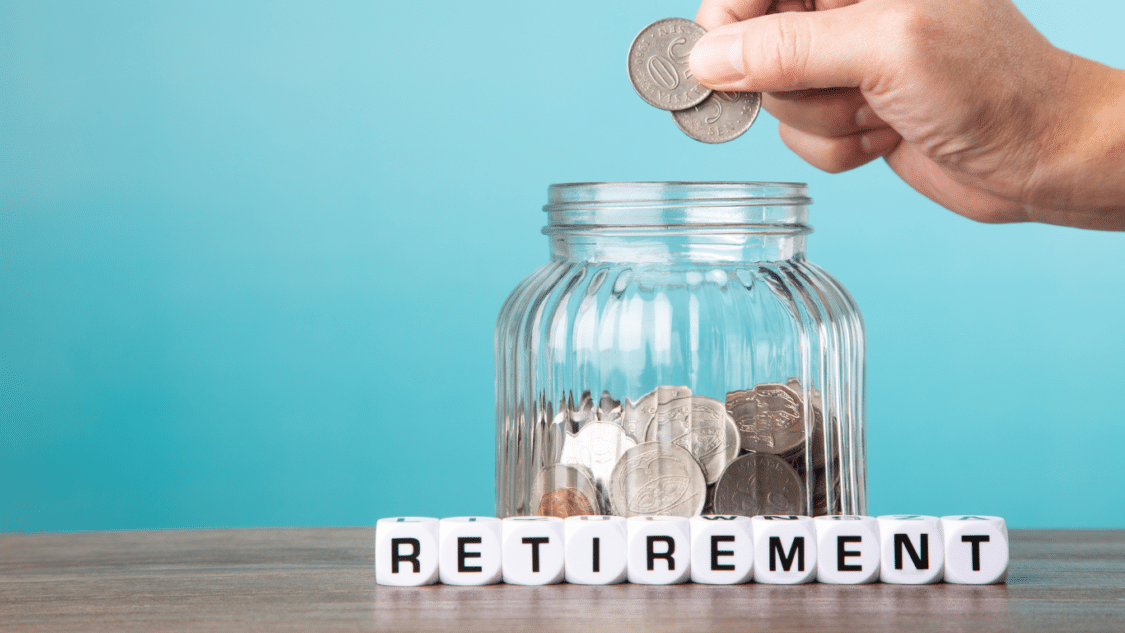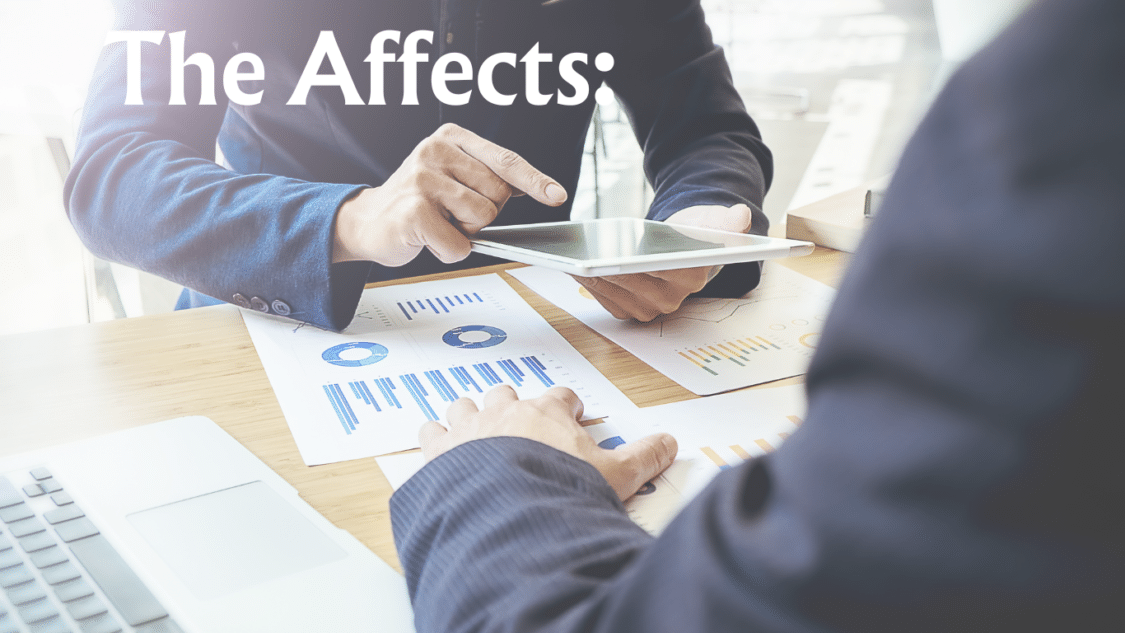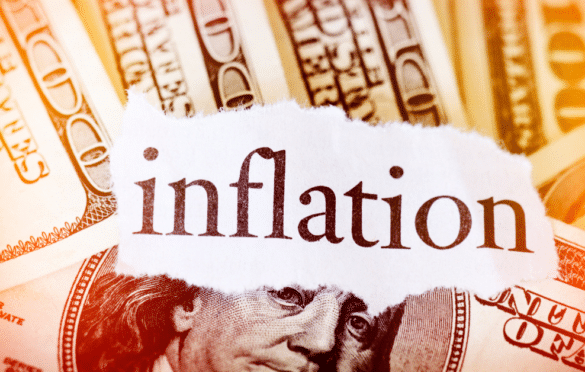Inflation might be something that you may believe doesn’t pertain to you. However, it affects everyone. It is the “measure of the increase in the price of goods and services over time.” When you go shopping expecting to spend only a certain amount but end up spending more, you have experienced inflation.
What effects does it have on the average person?
Inflation affects everyone differently. It can affect the cost of living in a fundamental sense, things such as food, electricity, and transport. However, it can also influence savings to account interest rates, company performance, and, as a result, stock prices.
As a result of an inflation rise, the value of your money also changes. It impacts your ‘buying power’ as it rises. You can buy less with your money. Growing inflation implies that maintaining our prior lifestyle has become more expensive when it comes to the cost of living. If your income has stayed the same by at least the inflation rate throughout the measured period, your purchasing power has decreased since the cost of goods and services has risen. This can also affect our savings, what we have invested, and our pensions.
Some of the additional effects it can have on the average person are listed below:
- Reduced Purchasing Power – Inflation reduces the power of purchasing with money. The exact amount of funds you hold can buy fewer goods and services over time. In turn, this can lead to a decrease in the standard of living for the average person.
- Reduced Savings – It can diminish the value of savings over time, making it more difficult for people to meet their goals, such as saving for a home, or saving for retirement, etc.
- Higher Interest Rates – To fight inflation, central banks may raise interest rates, making it more expensive for people to borrow money for things like mortgages, car loans, or credit card debt.
- Uncertainty – High inflation can create tension and instability in the economy. This makes it difficult for people to plan for the future and make financial decisions with certainty.
How does it affect cash savers?
Cash savers can be very negatively affected by a rise. As we mentioned earlier, their purchasing power is lowered. Therefore, all the saved cash is now not worth what it once was. Let’s put it this way the cost of living has drastically changed from when you were a child, and chances are that once you have grandchildren, it will also be drastically different than it is currently.

A high rate of inflation and a low rate of interest can lead us to the conclusion that all the money you have saved in a savings account is being downgraded. You might want to think about other ways to save, such as investing in assets that have historically risen at a faster pace than inflation. Consider inflation-linked assets, such as certain National Savings Accounts or government loans, as well as property, stock, and share investments.
How it affects retirement money?

If you have been putting money aside to save for your retirement, the funds must be monitored regularly. If, over time, the funds fail to go above the inflation rate, then another solution should be considered. It can have a great impact on retirement money and can potentially eat away at its purchasing power. Retirement money is typically invested in long-term savings vehicles such as 401(k) plans, IRAs, or other retirement accounts meant to provide income during retirement.
When retirement money is invested in these accounts, it is subject to economic fluctuation, such as inflation. If the inflation rate exceeds the rate of return on the investments, the value of the retirement money can also be reduced.
This can be problematic for retirees living on a fixed income because they have limited opportunities to earn additional income. As inflation deteriorates the value of their savings over time, it can be challenging to maintain their living and cover basic daily expenses such as housing, healthcare, and food.
However, there are strategies that retirees can use to help minimize the effects of inflation on their retirement money. One standard method is to invest in assets that can rise in value over time, such as stocks or real estate. These investments have historically outpaced inflation over the long term and can help protect retirement money from the effects of inflation.
Another strategy is to adjust spending habits to account for rising prices. By taking a proactive approach to managing expenses and seeking out opportunities to increase income, retirees can help minimize the effects of it on their retirement money.
How it affects investors?

An investor should try to invest in products with returns equal to or surpass inflation. Investing in various protected assets, such as inflation-indexed bonds, can help you protect your buying power and investment returns over time. This type of investment moves in sync with inflation, so it does not risk losing value.
It can significantly impact investors, particularly those who hold long-term investments such as stocks, bonds, and real estate. Inflation can minimize the purchasing power of investment returns and reduce the overall value of assets over time. One way that inflation affects investors is by reducing the real rate of return on their investments. The real rate of return is the price of an asset once it is adjusted for inflation. If inflation is higher than the rate of return on an investment, the investor’s purchasing power will be reduced.
Inflation can increase the cost of borrowing and reduce the value of fixed-income investments such as bonds. As it rises, interest rates rise along with it, making it more expensive for investors to borrow money. This can increase the cost of financing investments and reduce the potential returns. Rising interest rates can reduce the value of fixed-income investments as the yields become less attractive than those on new investments.
However, it is worth noting that some investments may benefit from inflation. For example, stocks and real estate may appreciate as inflation rises, as investors seek out assets that are expected to maintain their value over time. Additionally, companies that produce goods or services high in demand during inflationary periods may see their profits increase, resulting in higher stock prices and returns for investors.
Overall, it can have various impacts on investors, depending on factors such as type of investment, rate of inflation, and economic conditions. However, by staying informed and diversifying their portfolios, investors can help mitigate the effects of inflation and position themselves to achieve their long-term financial goals. This may involve investing in different asset classes, seeking opportunities to invest in inflation-protected securities, and regularly reviewing and adjusting their investment strategies to account for changing economic conditions.
Conclusion:
This can also affect our money in all kinds of ways. It’s important to be aware and have an overall view of your finances in order to make sure you’re not losing out but rather you’re protecting your wealth. In conclusion, it is a compound and multifaceted phenomenon that has been a major factor throughout human history. While some degree of inflation may be necessary for a healthy economy, too much of it can harm individuals, businesses, and society. Various factors affect this, including government policy, changes in supply and demand, and global economic conditions.
It is important to understand its common drivers and the significant factors that can influence it to make informed decisions about our finances. One of the key ways in which it can affect our money is by eroding its purchasing power over time. If the rate of inflation goes above the rate of return on our investments and savings, we may be losing money., it’s possible we’re losing money even if our account balances appear to be increasing.
In addition to affecting savings and investments, it can directly impact the cost of goods and services we rely on daily. As prices rise, our purchasing power decreases. This can be challenging for individuals with a fixed income, such as retirees or those living on a strict budget. Additionally, it can encourage investment and stimulate economic growth.
In order to protect our wealth and minimize the harmful effects of inflation, it is critical to stay informed by taking proactive steps to manage our finances. Some measures include investing in assets that can rise in value over time, such as stocks, real estate, or commodities. It may also involve adjusting our spending habits to account for rising prices and seeking out ways to maximize the value of our savings and investments.
Ultimately, inflation is a natural part of the economic cycle that we cannot avoid altogether. However, by understanding its drivers and effects, we can take steps to mitigate its impact on our finances and ensure that we are well-positioned to make do with the highs and lows of the economy over the long term.
For more news updates, visit our homepage now and see our latest news article. Want to learn more about trading? Visit our education page now and learn for FREE!

